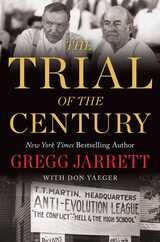 The United States are often presented as ‘one nation’, but that is far from the reality. One of the most exemplary of the Vanderbilt Agrarians, Donald Davidson, even spoke of a cultural ‘cold Civil War’ that began between the North and the South after WWI drew to a close (Southern Writers in the Modern World, U of Georgia Press, Athens, Ga., 1958, p. 34). The latest instance of this propaganda war against the South is Fox News journalist Greg Jarrett’s new book Trial of the Century, which rehashes the events of the John Scopes trial in Dayton, Tennessee, in 1925. His central claim is that Tennessee’s law against the teaching of evolution was an evil restriction upon the sacred right of freedom of speech. The rather unmistakable message that emanates from this is that laws upholding Christianity are bad; the untrammeled ‘free exchange of ideas’ is much better. Southerners should recognize his book for the attack on their Christian culture that it is. Prof. Davidson and the other Agrarians recognized the Scopes trial itself as such. Prof. Davidson describes windbags like Mr. Jarrett as ‘vain-minded modernists, all resolved to define God as science and to give the theory of evolution the status of quasi-religious dogma’ (Southern Writers, p. 40). He adds, ‘ . . . the Dayton episode dramatized, more ominously than any other event easily could, how difficult it was to be a Southerner in the twentieth century . . . . It was horrifying to see the cause of liberal education argued in a Tennessee court by a famous agnostic lawyer from Illinois named Clarence Darrow. It was still more horrifying—and frightening—to realize that the South was being exposed to large scale public detraction and did not know or much care how to answer’ (Ibid.). Hopefully Southerners will know and care how to answer this reprise of the Scopes trial that Mr. Jarrett is trying gin up. We can start by learning how the Southern Agrarians reacted to the Scopes trial. John Crowe Ransom became a defender of traditional religion: ‘John Ransom astonished his campus friends at Vanderbilt by openly challenging the modernist position and defending Fundamentalism in religion. I recall a tense scene on the third floor of Calhoun Hall at Vanderbilt during which Ransom, more excited than I had ever seen him, opposed Dr. Edwin Mims in vigorous argument over the issues raised at Dayton. Out of the bold and somewhat grim conviction of such moments, I should guess, grew the exacting study and thought that went into the composition of Ransom’s great book about science and religion, God Without Thunder: An Unorthodox Defense of Orthodoxy’ (Ibid., p. 41). Prof. Davidson wrote searing lines of poetry warning about the idolatrous worship of science. These are from ‘Fire on Belmont Street’:
Prof. Richard Weaver, a later Southern Agrarian, explained the wisdom, in his essay ‘The Older Religiousness of the South’, of relying on unchanging divine revelation rather than mutable scientific theories. This was not written specifically in response to Dayton as were the afore-mentioned, but it seems likely to have played a role in its creation:
‘Reverence for the “word of God” is a highly important aspect of Southern religious orthodoxy. Modern discussions of fundamentalism usually overlook the fact that belief in a revealed knowledge is the essence of religion in its older sense. The necessity of having some form of knowledge that will stand above the welter of earthly change and bear witness that God is superior to accident led Thomas Aquinas to establish his famous dichotomy, which teaches, briefly, that whereas some things may be learned through investigation and the exercise of reasoning powers, others must be given or “revealed” by God. Man cannot live under a settled dispensation if the postulates of his existence must be continually revised in accordance with knowledge furnished by a nature filled with contingencies. . . . It is therefore imperative in the eyes of the older religionists that man have for guidance in this life a body of knowledge to which the facts of natural discovery are either subordinate or irrelevant. This body is the “rock of ages,” firm in the vast sea of human passion and error. . . If moral philosophy must wait upon natural philosophy, all moral judgments become temporary, relative, and lacking in those sanctions which alone make them effective, as the more perspicacious Southern theologians pointed out’ (The Confederate South, 1865-1910; A Study in the Survival of a Mind and a Culture, LSU Dissertation, 1943, pgs. 89-90. Published by ProQuest LLC, Ann Arbor, Mich., 2015. Now available as The Southern Tradition at Bay.). This Southern intuition about the instability of science has been proven right once again, in a new analysis of Darwinian evolution no less. When Prof. Weaver did address the Scopes trial directly, he found that, contrary to Mr. Jarrett, the result of the trial was not a ‘sweeping victory’ for science, free speech, civilization, etc. Rather, ‘ . . . science received, in the popular estimation, a check in the trial but a moral victory, and this only led to more misunderstanding of the province of science in human affairs. The law of the State of Tennessee won a victory which was regarded as pyrrhic because it was generally felt to have made the law and the lawmakers look foolish. This also was a disservice to the common weal’ (The Ethics of Rhetoric, Hermagoras Press, Davis, Cal., 1985, pgs. 53-4). From the strictly Christian point of view, many holy elders have also appeared since Darwin’s time to warn us about the falseness and the destructive effects of his theory of evolution. We will quote only one, St. Theophan the Recluse (+1894), but these warnings could easily be multiplied: ‘People have suddenly had a thought and have started to write about preserving faith. But they don’t want to block the source of unbelief. This source is the spread of the teaching that the world formed by itself, according to which there is no need for God and the soul does not exist--it’s all atoms and chemistry, nothing more. This is being preached at [university] rostrums and in literature. He who breathes these fumes is inescapably stupefied, and loses his sense and faith. . . . Until these books are destroyed; until professors and literary men are forced not only not to hold to this theory, but even to demolish it—until then—faithlessness will grow and grow, and with it, self-will and the destruction of the present government. That’s the way the French Revolution went’ (Fr. Seraphim Rose, Genesis, Creation, and Early Man: The Orthodox Christian Vision, 2nd edn., Hieromonk Damascene, edr., St. Herman of Alaska Brotherhood, Platina, Cal., 2011, p. 792). From all of these sources and others, Dixie may draw ideas for how to challenge this renewed attack on the Biblical account of creation that she has consistently defended. In the near term, though, we ought to declare quite forthrightly to Mr. Jarrett that we simply don’t need his book around here at the South. We would be just as pleased if he threw it into the pit of hell where its celebrated atheistic evolution originated. Freedom needs limits to be enjoyed properly: Southerners, by and large, want only the freedoms compatible with life in Christ; Mr. Jarrett wishes for us to accept a more liberal freedom that would make living that kind of life impossible. And while we’re on this subject, isn’t it about time for the South to form her own news network? With the ease of recording videos and with the growing number of sharp Southern commentators, could we not produce at least a weekly show presenting news stories from the traditional Southern perspective? Fox News obviously has a high degree of disdain for Dixie and her Christian culture – from the South-slandering Victor Davis Hanson to Brett Baier’s book with its slobbering approval of General Grant to the ‘conservative transgender’ commentator Bruce Jenner. The positive ramifications of a Dixie-centric news/commentary channel for the South would likely be many.
6 Comments
|
AuthorWalt Garlington is a chemical engineer turned writer (and, when able, a planter). He makes his home in Louisiana and is editor of the 'Confiteri: A Southern Perspective' web site. Archives
July 2024
|

